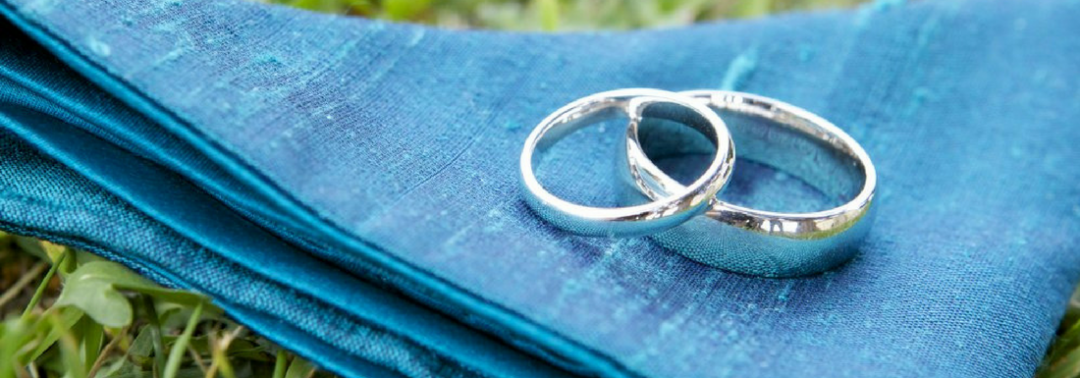
by Hanami Dream | 8, January, 2020 | blog, holy trinity of wedding planning, tips
Leap year proposals
There’s an extra day to play with this year as 2020 is a leap year. So we will have the pleasure of the 29th February for the first time again in four years. When it comes to proposing, traditionally a leap year meant that the tables were turned and women could have the chance to propose.
Unlucky leap year
Superstition suggests that 2020 may be a bit erratic. Many cultures believe that leap years are unlucky. Reportedly, the world goes a bit erratic with crazy weather patterns, additional suffering and a pretty gloomy outlook. Hence why some countries believe it is unlucky to make major decisions in a leap year like buying a house or car, or getting married. It is also traditionally seen as unlucky to get married on a leap day (29 February), though some people comment that you’d only have to remember your wedding anniversary every 4 years.
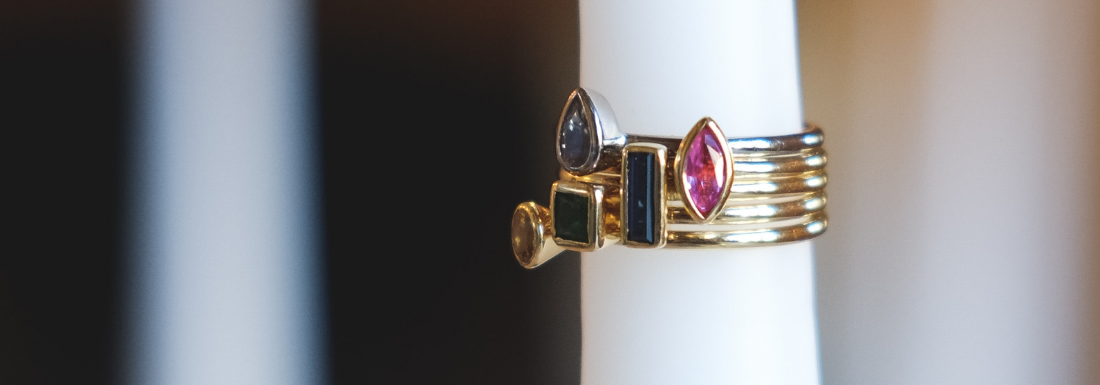
Whether you’re superstitious or not, before you rush to send out your save the date cards, here’s a little help with picking a date for your special day (and take a look at this useful guide to setting the date too).
Friday the thirteenth
There’s another two seemingly unlucky Fridays to avoid in 2020. Superstition often forces couples to avoid the 13th of the month (especially if it falls on a Friday). Other dates that are supposedly unlucky include your birthday, the day of a full moon, April Fool’s Day and it used to be forbidden to get married in Lent and Advent by the church.
Set the date
Some people think that 7 is supposed to be a lucky number whilst 4 is deemed unlucky in Japanese and Chinese traditions, so dates with these numbers may be sought after or avoided by couples. Instead perhaps you want to pick a meaningful date to you such as the anniversary of the date you first met, a memorable date that you’ll remember like 12/12/12 or a nod to your heritage such as your grandparents’ wedding anniversary date.
Think ahead
Consider which year you will get married. This may seem basic but if you want to do something soon then suppliers and venues may already be booked up. So, think about how long you have to plan the
wedding. The more notice you give then the more likely you are able to have your first choice of date.
The four seasons
Depending on when your wedding is in the year could affect what the weather is likely to be like. It could also influence your themes, colours, venue, attire, transportation, food choice etc. Also, different seasons can have an impact on the price and availability of food and flowers. Venues may have different prices depending on the time of the year. And it’s worth bearing in mind whether your key guests or wedding party would be available in school holidays.
Gone till November
Old superstitions state your fate as a couple depending on the month you choose to wed. Some say it was unlucky for a couple to get married in May. Whilst June and other summer months are very popular and even December is gaining in popularity, presumably so that people can use holiday time around the big day. It is worth considering different months as popular ones are in demand so prices may increase and availability will decrease.
Eight days a week
Ironically in another old poem, it states that getting married on a Saturday is unlucky which nowadays is the most common day for people to tie the knot. However, it is also one of the most expensive days too. More people are now considering other weekdays as options and Sundays too (although this used to be deemed as a mark of disrespect).
A hard day’s night
A wedding after dark used to be considered unlucky but you could split your guests up to have some come for the whole day and others just join you for the evening part of the day so you don’t have to pay for all of them to have a sit-down meal.
Look outside your bubble
Make sure you think about what else is going on in the world such as national, local and annual events. Take in to consideration public holidays , sporting events, religious festivals and other key guests’ occasions (like birthdays or wedding anniversaries.
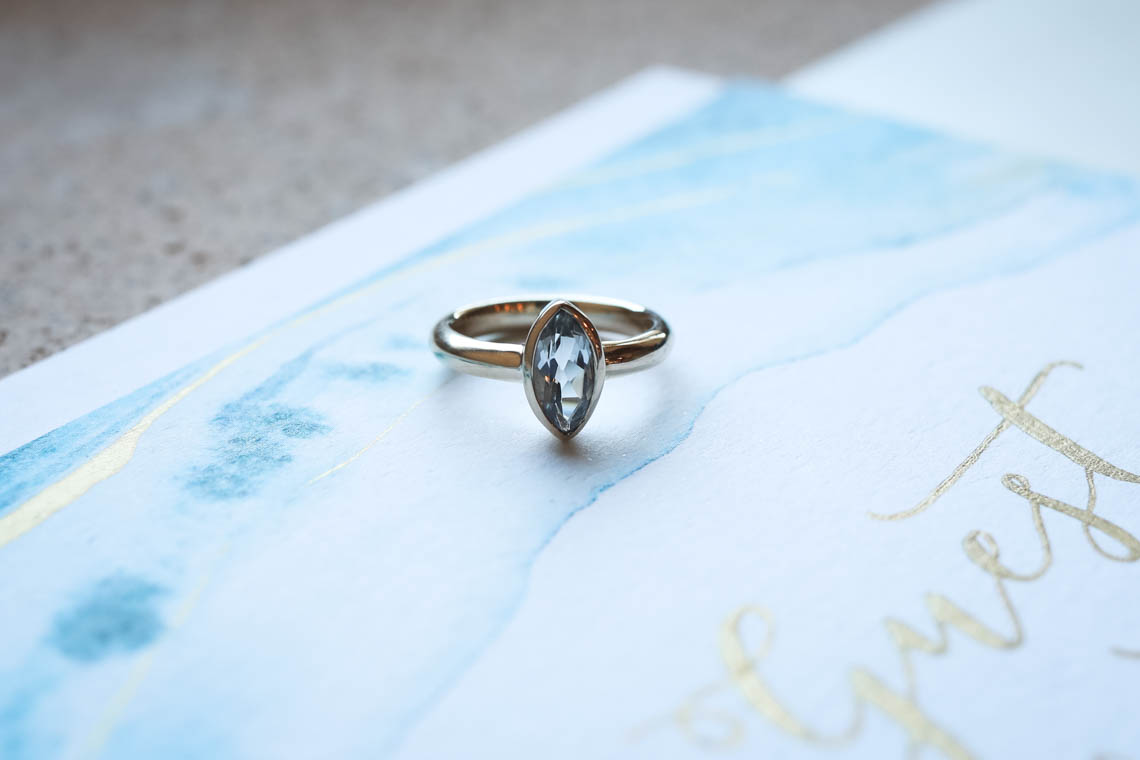
Here’s a list of some events in 2020 (in England) that could influence your choice of dates, that you may wish to avoid or embrace:
Public holidays
- New Year’s Day 1 January
- Good Friday 10 April
- Easter Monday 13 April
- May Day Bank Holiday 8 May (changed this year in order to coincide with VE celebrations)
- Spring Bank Holiday 25 May
- Summer Bank Holiday 31 August
- Christmas Day 25 December
- Boxing Day 26 December
Sporting events
- Six Nations Tournament 1 February – 14 March
- Super Bowl 2nd February
- Boat Race 29 March
- Grand National 4 April
- London Marathon 26 April
- FA Cup Final 23 May
- Champions League Final 30 May
- UEFA Euro 2020 12 June – 12 July
- Royal Ascot 16 – 20 June
- Tour de France 27 June – 19 July
- Wimbledon 29 June – 12 July
- Henley Regatta 1 – 5 July
- British Grand Prix 17-19 July
- Summer Olympic Games in Tokyo 24 July – 9 August
- Paralympic Games 25 August – 6 September
- ICC World Twenty20 18 October – 15 November
Religious festivals
- Epiphany 6 January
- Orthodox Christmas Day 7 January
- Orthodox New Year 14 January
- Passover 8 – 16 April
- Easter Sunday 12 April
- Ramadan begins 23 April – 23 May
- Eid 31 July
- Diwali 14 November
- Hanukkah 10-18 December
- Christmas
Other occasions
- Burns Night 25 January
- Chinese New Year 25 January (year of the rat in 2020)
- Valentine’s Day 14 February
- Leap day Saturday 29 February
- St David’s Day 1 March
- St Patrick’s Day 17 March
- Mother’s Day 22 March
- Shrove Tuesday 25 March
- Clocks go forward 29 March
- April Fool’s Day 1 April
- St George’s Day 23 April
- Eurovision Song Contest 12 – 16 May
- Chelsea Flower Show 19 – 23 May
- Trooping the Colour 13 June
- Father’s Day 21 June
- Glastonbury 24 – 29 June
- Independence Day 4 July
- Clocks go back 25 October
- Halloween 31 October
- Guy Fawkes 5 November
- Remembrance Day 11 November
- Thanksgiving 26 November
- St Andrew’s Day 30 November
- New Year’s Eve 31 December
‘Unlucky’ dates
- March 13th 2020
- November 13th 2020
- August 13, 2021
- Friday, May 13, 2022
Good luck on your quest to pick a date for your wedding day (and therefore your wedding anniversary date for years to come). I know a lot of thought will go in to answering the question of ‘So, when is the big day?’ Remember to pick a date that works for you.
Enjoy celebrating in 2020 and I wish you a very Happy New Year.
sign up to receive the latest posts straight to your inbox
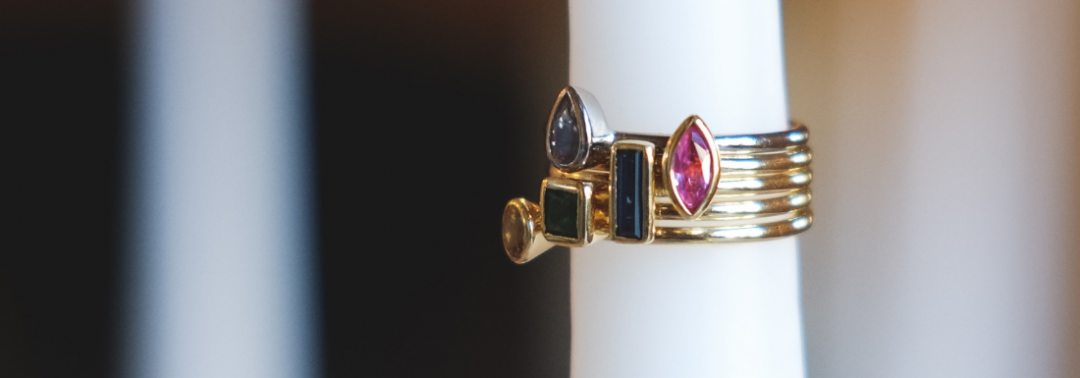
by Hanami Dream | 8, January, 2019 | blog, holy trinity of wedding planning, tips
Happy New Year! And huge congratulations if you’ve got engaged over the festive period.
Telling people your big news and flashing your new piece of jewellery is such an exciting time and it won’t be long until you’ll be asked (again and again) when is your big day.
So here’s a little help with picking a date for your special day (and take a look at this useful guide to setting the date too).
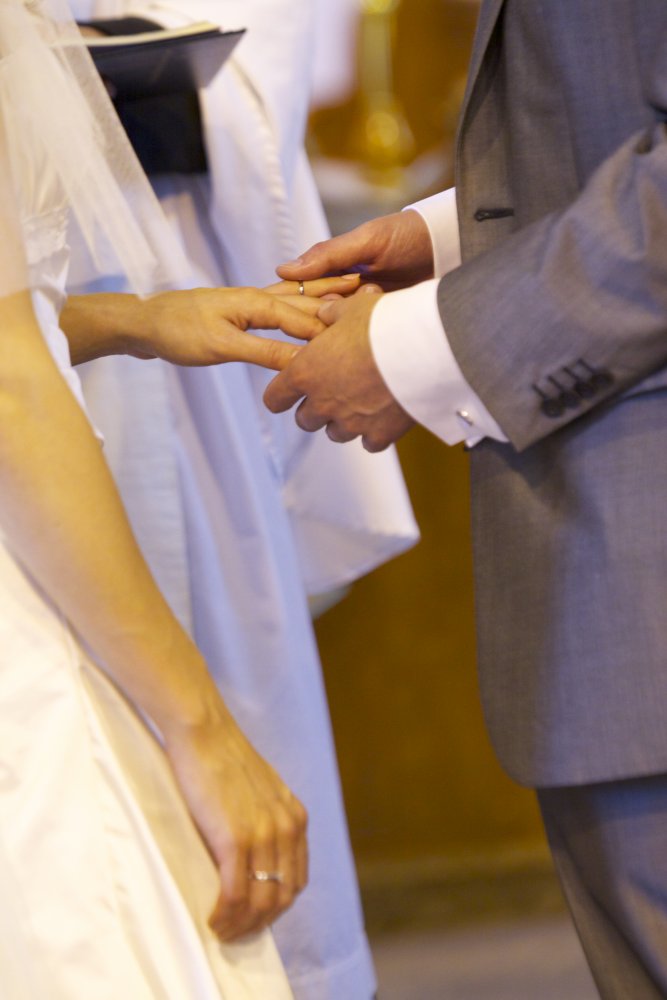
Before you rush to send out your save the date cards, here are some things to bear in mind when setting your wedding date:
Date
Superstition often forces couples to avoid the 13th of the month (especially if it falls on a Friday and there’s two in 2019), your birthday, the day of a full moon, April Fool’s Day and it used to be forbidden to get married in Lent and Advent by the church. Some people think that 7 is supposed to be a lucky number whilst 4 is deemed unlucky in Japanese and Chinese traditions, so dates with these numbers may be sought after or avoided by couples. Instead perhaps you want to pick a meaningful date to you such as the anniversary of the
date you first met, a memorable date that you’ll remember like 12/12/12 or a nod to your heritage such as your grandparents’ wedding anniversary date.
Year
Which year are you thinking? This may seem like a basic question but if you want to do something soon then suppliers and venues may already be booked up. So, think about how long you have /want to plan the wedding. The more notice you give then the more likely you are able to have your first choice of date.
Time of year / season
This could affect what the weather is likely to be like which could influence your themes, colours, venue, attire, transportation, food choice etc. Also, different seasons can have an impact on the price and availability of food and flowers. Venues may have different prices depending on the time of the year and will your key guests or wedding party be available in school holidays?
Month
Old superstitions state your fate as a couple depending on the month you choose to wed. Some say it was unlucky for a couple to get married in May. Whilst June and other summer months are very popular and even December is gaining in popularity, presumably so that people can use holiday time around the big day. It is worth considering different months as popular ones are in demand so prices may increase and availability will decrease.
Day of the week
Ironically in another old poem, it states that getting married on a Saturday is unlucky which nowadays is the most common day for people to tie the knot. However, it is also one of the most expensive days too. More people are now considering other weekdays as options and Sundays too (although this used to be deemed as a mark of disrespect).
Day or night
A wedding after dark used to be considered unlucky but you could split your guests up to have some come for the whole day and others just join you for the evening part of the day so you don’t have to pay for all of them to have a sit-down meal.
Rest of the world
Make sure you think about what else is going on in the world such as national, local and annual events including:
- Public holidays
- Sporting events
- Other people’s occasions (like birthdays, wedding anniversaries and religious festivals)
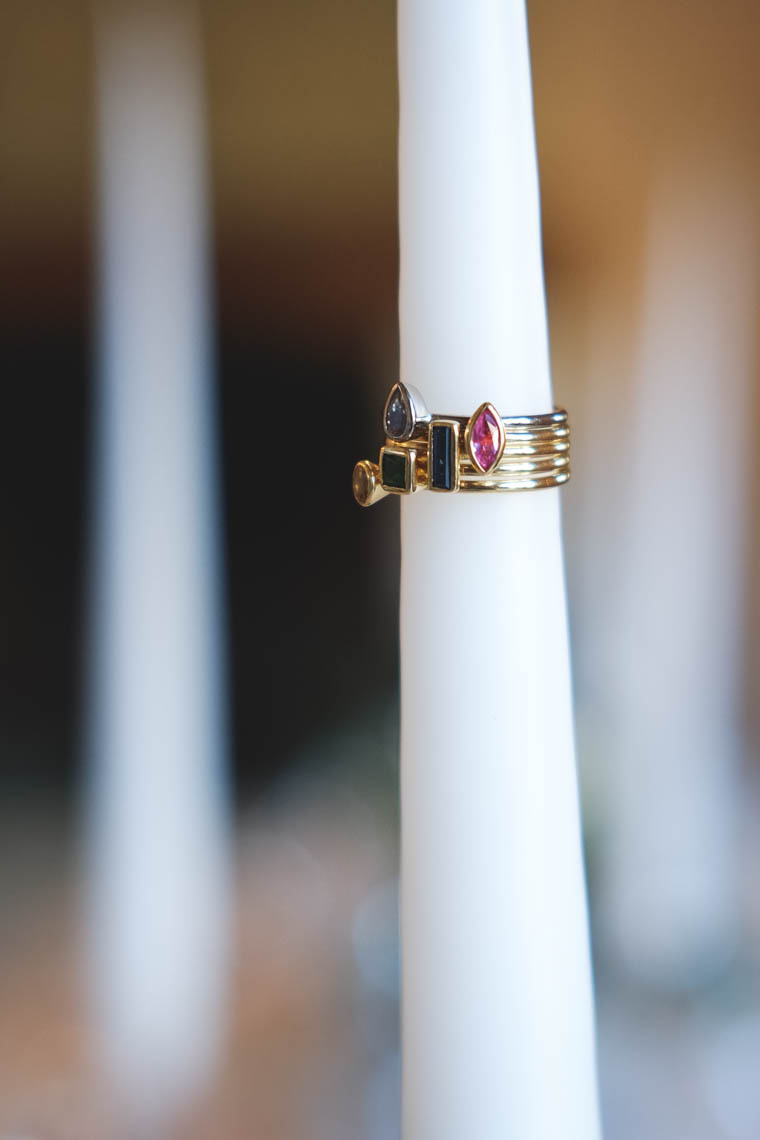
Here’s a list of some events (in England) in 2019 that could influence your choice of dates:
- New Year’s Day 1 January
- Epiphany 6 January
- Orthodox Christmas Day 7 January
- Orthodox New Year 14 January
- Burns Night 25 January
- Chinese New Year 5 February – year of the pig
- Valentine’s Day 14 February
- St David’s Day 1 March
- Mardi Gras 5 March
- Shrove Tuesday 5 March
- Mother’s Day 31 March
- St Patrick’s Day 17 March
- First Day of Spring 20 March
- Clocks go forward 31 March
- April Fool’s Day 1 April
- Grand National 6 April
- Boat Race 7 April
- Good Friday 19 April
- Passover 19 – 27 April
- Easter Monday 22 April
- Earth Day 22 April
- St George’s Day 23 April
- London marathon 28 April
- Cinco de Mayo 5 May
- Ramadan begins 5 May – 4 June
- May Day Bank Holiday 6 May
- Eurovision Song Contest 14-18 May
- FA Cup Final 18 May
- Chelsea Flower Show 21 – 29 May
- Monaco Grand Prix 23 – 26 May
- Spring Bank Holiday 27 May
- Cricket World Cup (England) 30 May – 9 June
- Women’s World Cup (France) 7 June – 7 July
- Trooping the Colour 8 June
- Father’s Day 16 June
- First Day of Summer 21 June
- Royal Ascot 22-23 June
- Glastonbury 26-30 June
- Wimbledon 1 – 14 July
- Henley Regatta 3 – 7 July
- Independence Day 4 July
- British Grand Prix 12-14 July
- Eid 11-15 August
- Summer Bank Holiday 26 August
- Friday 13th September 2019
- Rugby World Cup (Japan) 20 September – November
- First Day of Autumn 23 September
- Diwali 27 October
- Clocks go back 27 October
- Halloween 31 October
- Guy Fawkes 5 November
- Remembrance Day 11 November
- Thanksgiving 28 November
- St Andrew’s Day 30 November
- Friday 13th December 2019
- Hanukkah 22-30 December
- First Day of Winter 22 December
- Christmas Day 25 December
- Boxing Day 26 December
- New Year’s Eve 31 December
Plus other upcoming ‘unlucky’ dates of :
- Saturday 29th February 2020
- Friday 13th March 2020
- Friday 13th November 2020
And not forgetting the Olympic Games in 2020 in Tokyo 24 July – 9 August.
Enjoy celebrating in 2019 and I wish you a very Happy New Year.
sign up to receive the latest posts straight to your inbox
winner UK Blog Awards 2018
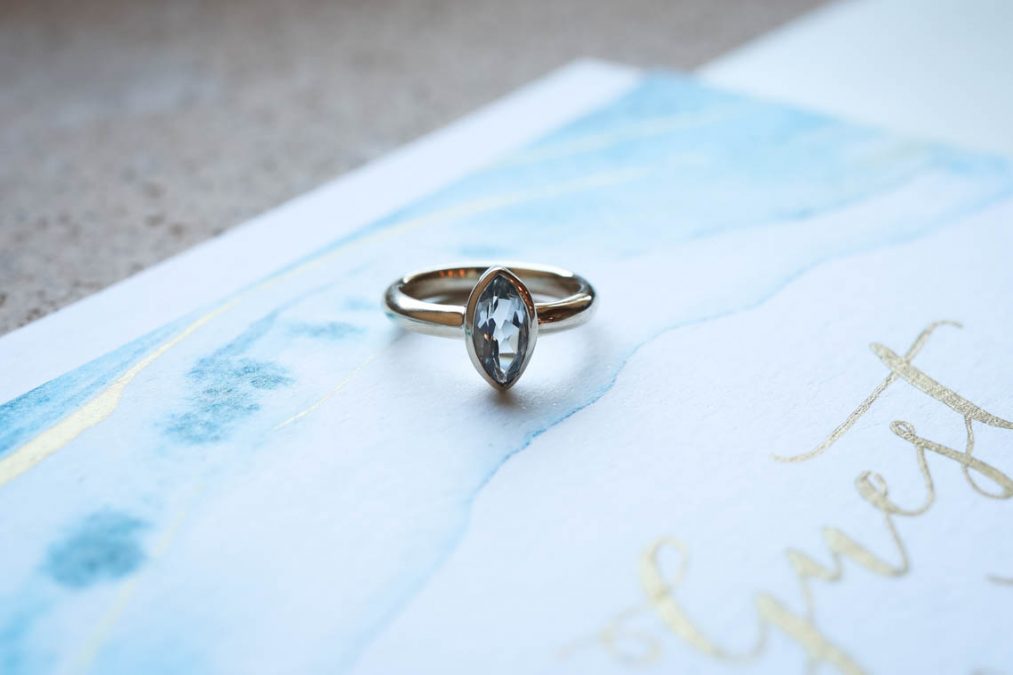
by Hanami Dream | 1, January, 2018 | blog, holy trinity of wedding planning, tips
Happy New Year! And huge congratulations to you if you’ve got engaged over the festive period.
Telling people your big news and flashing your new piece of jewellery is such an exciting time and it won’t be long until you’ll be asked (again and again) when is your big day.
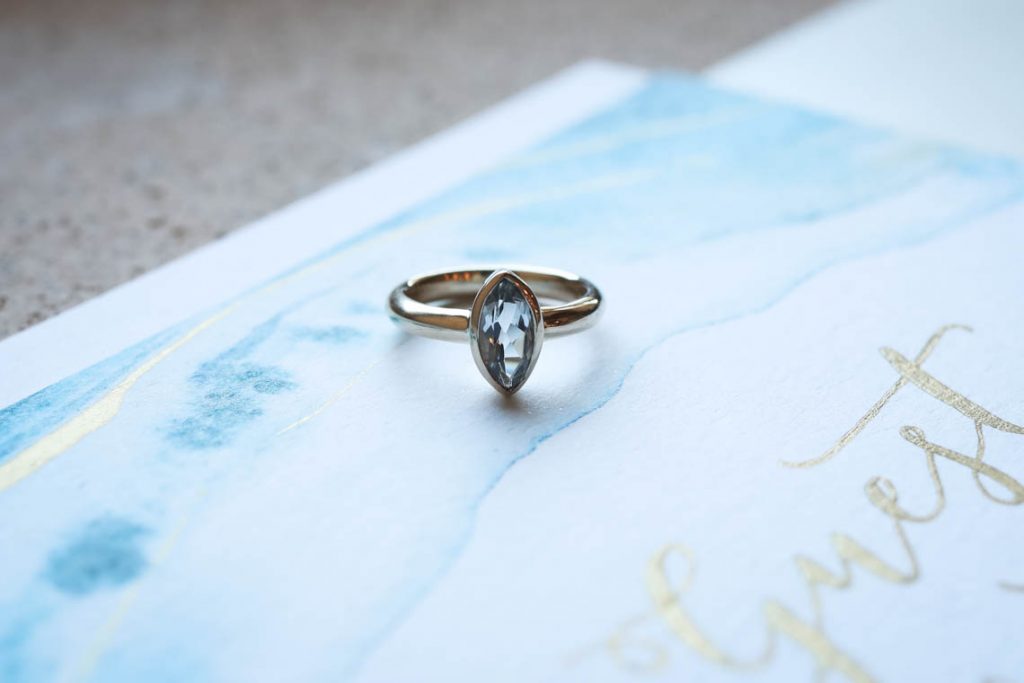
So here’s a little help with picking a date for your special day (and take a look at this useful guide to setting the date too).
Make sure you think about what else is going on in the world such as national, local and annual events including:
- Public holidays
- Sporting events
- Royal occasions
- Other people’s occasions (like birthdays, wedding anniversaries and religious festivals)
Here’s a list of some events (in England) in 2018 that could influence your choice of dates:
- New Year’s Day 1 January
- Epiphany 6 January
- Orthodox Christmas Day 7 January
- Orthodox New Year 14 January
- Burns Night 25 January
- Winter Olympics 9-25 February
- Shrove Tuesday 13 February
- Valentine’s Day 14 February
- Chinese New Year 16 February dog
- St David’s Day 1 March
- International Women’s Day 8 March
- Mother’s Day 11 March
- St Patrick’s Day 17 March
- First Day of Spring 20 March
- Boat Race 24 March
- Clocks go forward 25 March
- Good Friday 30 March
- Passover 30 March – 7 April
- April Fool’s Day 1 April
- Easter Day 1 April
- Easter Monday 2 April
- London Marathon 22 April
- St George’s Day 23 April
- May Day Bank Holiday 7 May
- Ramadan begins 15 May
- Royal Wedding 19 May
- FA Cup Final 19 May
- Spring Bank Holiday 28 May
- Trooping the colour 9 June
- Eid 14-15 June
- Father’s Day 17 June
- Royal Ascot 19-23 June
- First Day of Summer 21 June
- Wimbledon 2 – 15 July
- Independence Day 4 July
- Henley Regatta 4 – 8 July
- British Grand Prix 8 July
- Summer Bank Holiday 27 August
- First Day of Autumn 23 September
- Diwali 19 October
- Clocks go back 28 October
- Guy Fawkes 5 November
- Remembrance Day 11 November
- Thanksgiving 22 November
- St Andrew’s Day 30 November
- Hanukkah 2-10 December
- First Day of Winter 21 December
- Christmas Day 25 December
- Boxing Day 26 December
Enjoy celebrating in 2018 and I wish you a very Happy New Year.

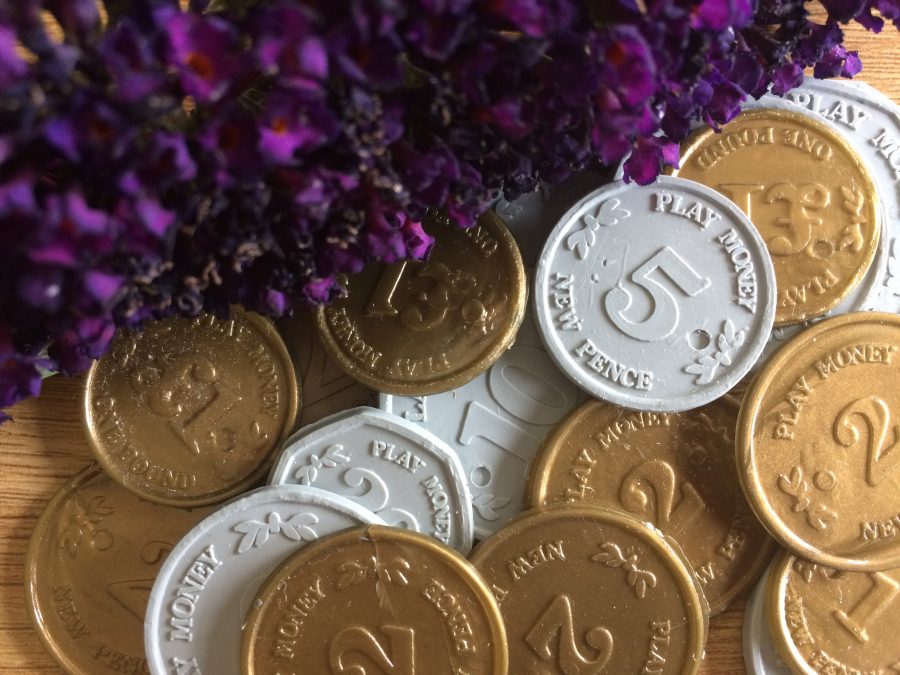
by Hanami Dream | 16, October, 2017 | blog, holy trinity of wedding planning, tips
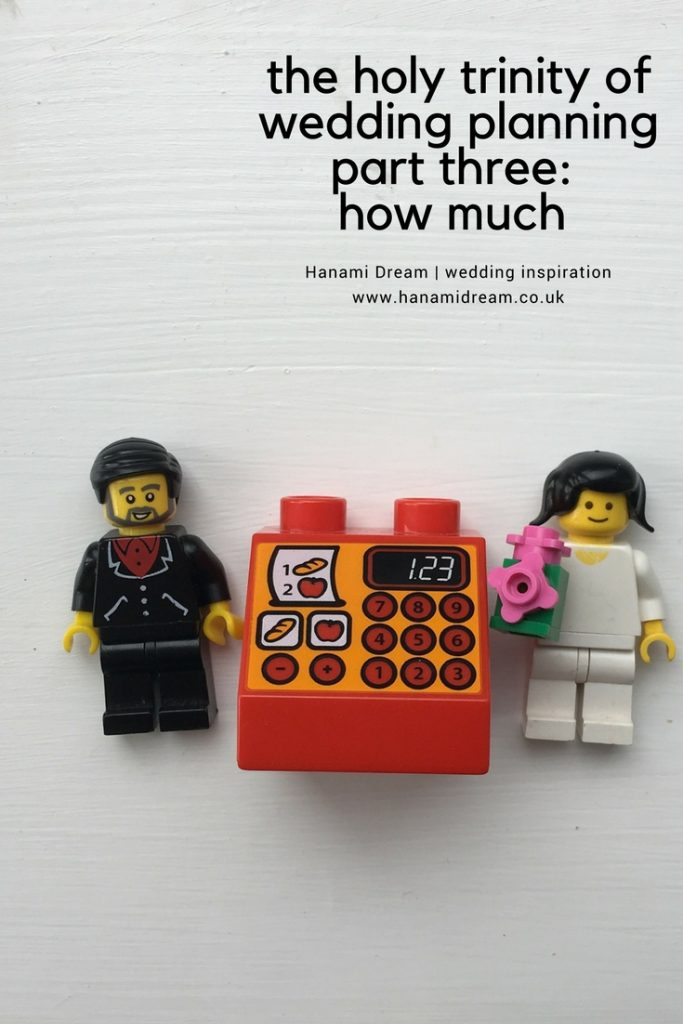 So far in the series, I’ve introduced the three key aspects of planning a wedding that pretty much affect every other thing that is connected with your big day. These are who, where and how much (otherwise known as your guests, venue and budget). This group of three things are very much intertwined. Plus when you hold your wedding is connected too! As previously covered (in the who and where posts), nearly all the decisions you have to make about your wedding will come back to one, two or all of the elements in what I class as ‘the holy trinity of wedding planning’.
So far in the series, I’ve introduced the three key aspects of planning a wedding that pretty much affect every other thing that is connected with your big day. These are who, where and how much (otherwise known as your guests, venue and budget). This group of three things are very much intertwined. Plus when you hold your wedding is connected too! As previously covered (in the who and where posts), nearly all the decisions you have to make about your wedding will come back to one, two or all of the elements in what I class as ‘the holy trinity of wedding planning’.
This post deals with the tricky topic of money and how to allocate and prioritise your budget.

For example, where you have your wedding will affect the cost, as a wedding abroad, a local hotel wedding or a rustic barn venue will all vary considerably in price.
Likewise, when you have your wedding will incur different price structures, especially for venues. Different times of the year vary in price and peak season (summer months in the UK) will be more expensive than winter or off peak times. Less popular days of the week are often cheaper than weekend days.
Finally, who you invite or how many guests will obviously have an impact – the more you invite, the more it will cost.
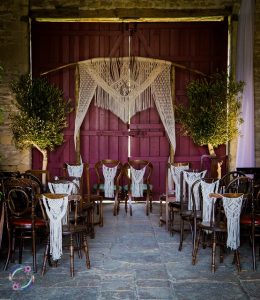
There’s often a perception that anything labelled ‘wedding’ will be more expensive. In certain areas, I don’t believe that the type of event that you’re holding should affect the costs. However, I do understand that a wedding is a really special day and so it demands a certain level of consideration, time and effort to create the special day the couple have envisaged. Couples do have a greater expectation for this life changing event (that they’ll hopefully only do once) and so this will mean more attention from suppliers which can often increase costs to cover additional involvement and interaction.

So, how much will your wedding cost?
Well, this is like asking how long is a piece of string? Because everyone has a different sized budget and it can vary based on what you choose for your day.
As with most elements of the wedding day, each component can be prioritised in order to put the focus where you want it to go. Bear in mind that within each category of your budget you have a range of price points you could choose depending on the quality (ie you could pick caviar or chips for your food! You could arrive by helicopter or have your mate’s dad drop you off in his car.)
Overall wedding budgets are on the rise. The average cost of a wedding in the UK (outside of London) is currently £27,000. The largest part of the wedding budget is spent on catering, the venue, photography, the wedding dress and entertainment – in that order.
As a guide, I tend to suggest to couples that they allocate around 35% of their overall wedding budget (£9,450 of a £27,000 budget) to cover all aspects of the reception (to include cake, décor, drink, favours, food, furniture and venue hire costs).
Other areas of the budget should include these categories:
- Ceremony
- Reception
- Entertainment
- Attire
- Rings
- Photography
- Flowers
- Stationery
- Transport
- Gifts
- Hen/stag parties
- Honeymoon (optional)
Take a look at an example of a wedding budget in percentage terms and please contact me if you’d like to see a further breakdown of costs.
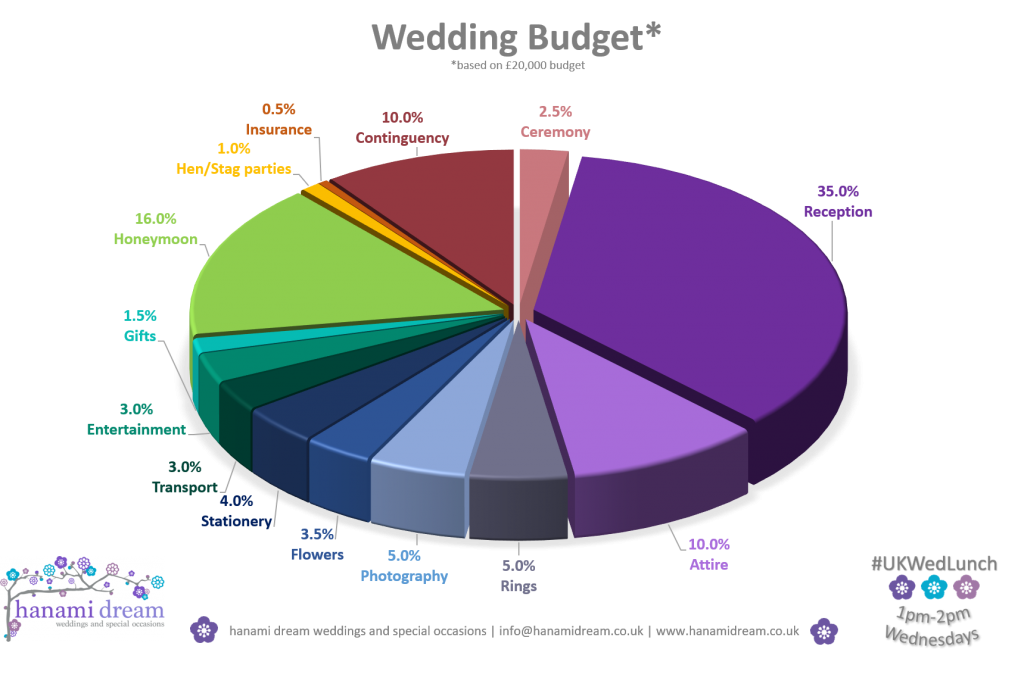
Fixed costs
Pivotal to all your planning is how much money you have to play with. This will determine whether you can go to town or be a bit more creative and diy some elements yourself. How much you have to spend will definitely factor in to how many people you can invite, where you can afford and what they can eat.
There are some costs that won’t change no matter how many people are at your wedding. These are called fixed costs such as:
- Ceremony fee
- Decorations
- Entertainment
- Insurance
- Photography
- Rings
- Venue hire costs
- Wedding dress
Variable costs
There are a number of costs that will alter depending on how many people are enjoying them. As well as the number of guests, you should also consider the size of your bridal party too. These variable costs include:
- Accommodation
- Cake
- Drinks
- Favours
- Food
- Flowers (for attendants)
- Gifts
- Stationery (such as invitations, menus, orders of services, name places etc)
- Suits and dresses for the bridal party
- Transport
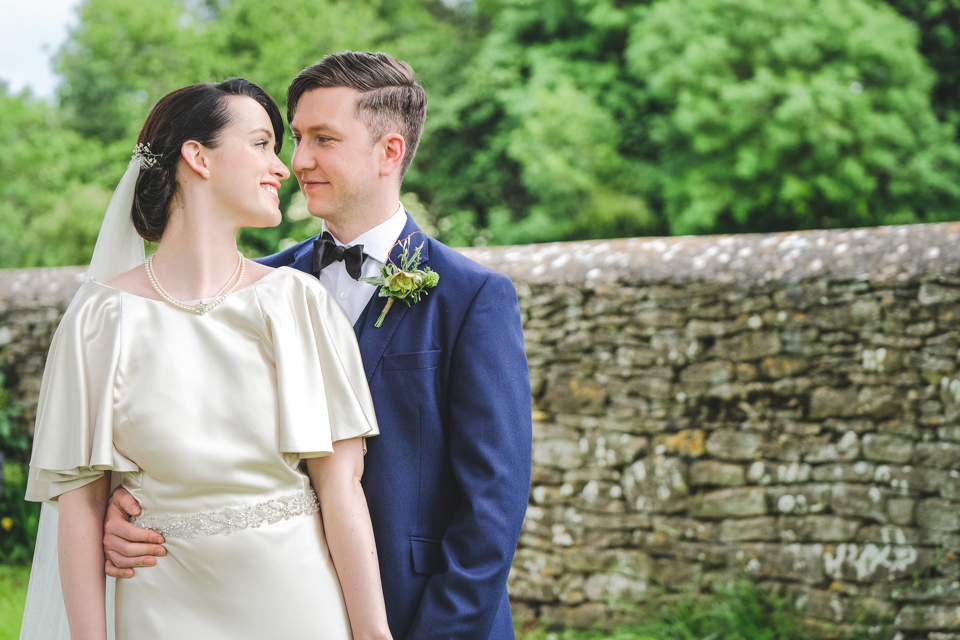
Here are my top tips for planning and managing your wedding budget:
- Ascertain how much money you have available
- Determine who is paying or contributing and by how much
- Decide whether to include your honeymoon in the wedding budget costs
- Set a budget
- Stick to the budget
- Have a contingency of about 10%
- Determine the size of your bridal party (and who is paying for all elements of their attire etc)
- Calculate number of guests attending
- Prioritise the budget categories to ascertain your ‘must haves’ versus your ‘nice to haves’
- Adjust the budget according to your priorities
- Research costs – get at least three quotes for each item for comparison
- Work out your fixed costs
- Calculate the difference in variable costs depending on the number of guests attending
- Confirm when and how much deposits and instalment are payable
- Ask about cancellation fees and timings
- Write down what you’ve paid, when you’ve paid it and what you’ve still to pay
- Include tips for waiting staff etc
- Remember it’s just one day and focus on what is really important – your life together!
With the who, where and how much at the fore front of your mind, you can set the date and everything else can fall in to place so you can start planning all the other finer details. Take a look at this handy wedding planning timeline to see when you need to plan for other elements of the wedding day.
Please contact me if you’d like further help and guidance with your budget allocation and a budget spreadsheet template to help with all aspects of your wedding planning.

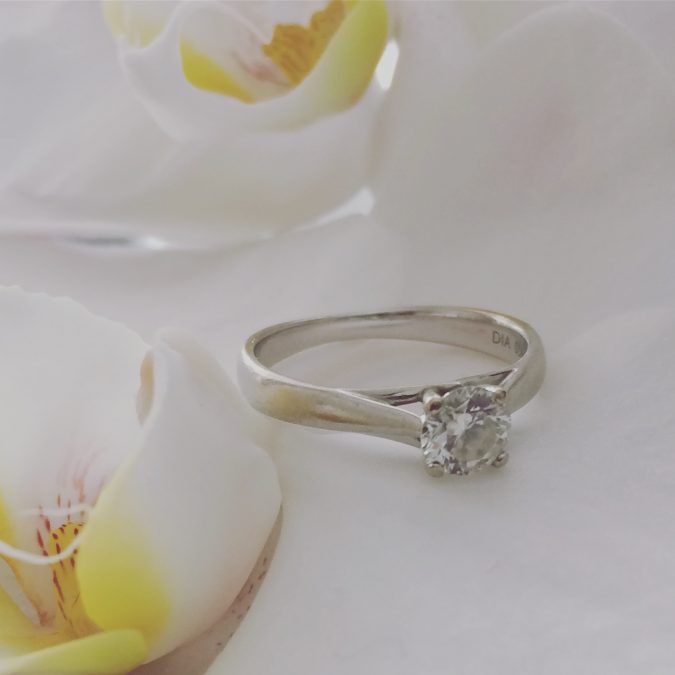
by Hanami Dream | 1, January, 2017 | blog, holy trinity of wedding planning, tips
Happy New Year!
I love this time of year. It’s when our metaphorical diary is full of blank pages yet unwritten.
For lots of people, the new year is a popular time to book holidays, make resolutions, kick start a new healthy regime and start thinking about personal special occasions that we have coming up.
Plus the start of the year often spurs people to pop the question and/or kickstart their wedding planning.
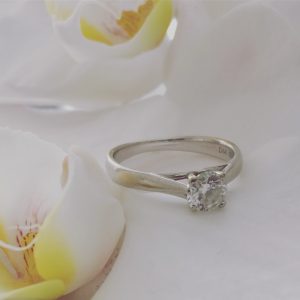
Huge congratulations to you if you’ve got engaged over the festive period.
Telling people your big news and flashing your new piece of jewellery is such an exciting time and it won’t be long until you’ll be asked (again and again) when is your big day.
So here’s a little help with picking a date for your special day (and take a look at this useful guide to setting the date too).
Make sure you think about what else is going on in the world such as national, local and annual events including:
- Public holidays
- Sporting events
- Royal occasions
- Other people’s occasions (like birthdays, wedding anniversaries and religious festivals)
Here’s a list of some events (in England) in 2017 that could influence your choice of dates:
- New Year’s Day 1 January
- Epiphany 6 January
- Orthodox Christmas Day 7 January
- Orthodox New Year 14 January
- Burns Night 25 January
- Chinese New Year 28 January
- Valentine’s Day 14 February
- Shrove Tuesday 28 February
- St David’s Day 1 March
- St Patrick’s Day 17 March
- First Day of Spring 20 March
- Clocks go forward 26 March
- Mother’s Day 26 March
- April Fool’s Day 1 April
- Boat Race 2 April
- Passover 11-18 April
- Good Friday 14 April
- Easter Day 16 April
- Easter Monday 17 April
- St George’s Day 23 April
- London Marathon 23 April
- May Day Bank Holiday 1 May
- FA Cup Final 27 May
- Spring Bank Holiday 29 May
- Royal Ascot 16-20 June
- Father’s Day 18 June
- First Day of Summer 21 June
- Eid 26 June
- Henley Regatta 28 June – 8 July
- Wimbledon 3 – 16 July
- Independence Day 4 July
- British Grand Prix 7-9 July
- Summer Bank Holiday 28 August
- First Day of Autumn 22 September
- Diwali 19 October
- Clocks go back 29 October
- Guy Fawkes 5 November
- Remembrance Day 11 November
- Thanksgiving 23 November
- St Andrew’s Day 30 November
- Hanukkah 13-20 December
- First Day of Winter 21 December
- Christmas Day 25 December
- Boxing Day 26 December
Enjoy celebrating in 2017 and I wish you a very Happy New Year.

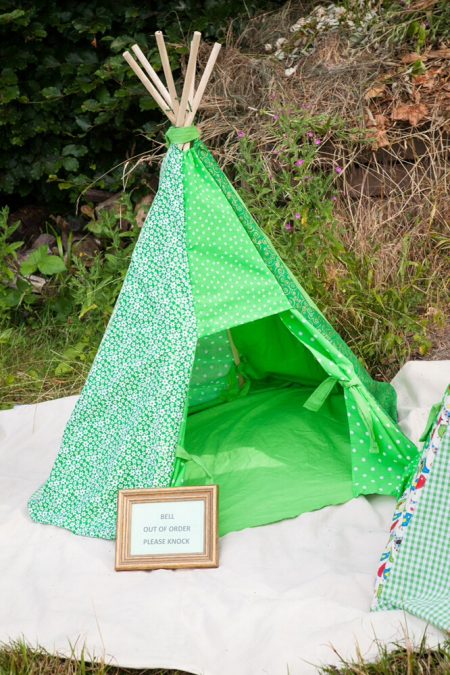
by Hanami Dream | 2, June, 2016 | blog, holy trinity of wedding planning, tips
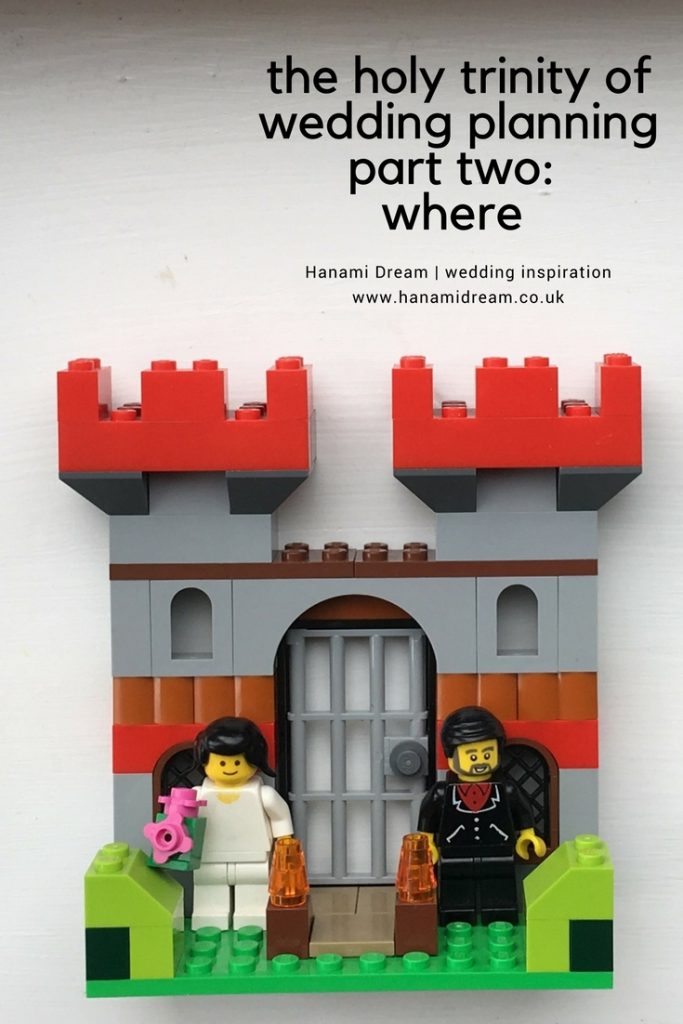 So far in the series, I’ve introduced the three key aspects of planning a wedding that pretty much affect every other thing that is connected with your big day. These are who, where and how much (otherwise known as your guests, venue and budget). This group of three things are very much intertwined. Plus when you hold your wedding is connected too! As previously covered (in the who post), nearly all the decisions you have to make about your wedding will come back to one, two or all of the elements in what I class as ‘the holy trinity of wedding planning’.
So far in the series, I’ve introduced the three key aspects of planning a wedding that pretty much affect every other thing that is connected with your big day. These are who, where and how much (otherwise known as your guests, venue and budget). This group of three things are very much intertwined. Plus when you hold your wedding is connected too! As previously covered (in the who post), nearly all the decisions you have to make about your wedding will come back to one, two or all of the elements in what I class as ‘the holy trinity of wedding planning’.
This month I’m going to tackle the where element and your all-important choice of venue (and will look at the last element in the trinity of how much another time).

Finding the right venue that is available at the right time, for the right price, for the right number of guests will be one of the first (and trickiest) parts of planning your wedding. But once you’ve decided on this element everything else will seem like a doddle! Before venue hunting, have a rough idea of your budget and how many guests you want to share the day with you. (I told you that the where, who and how much elements would come in to play.) And have an idea of when you want it to take place too. See my top tips below to give you an idea of some other factors to help you decide the place where you’ll say ‘I do’.
Nowadays, the world is pretty much your oyster in terms of options available. If you’ve seen ‘Don’t Tell the Bride’, you’ll realise that you can get married in all types of places!
1.Where in the world
Maybe you don’t fancy risking the British weather and want to get married outside of the UK, to jet off or elope. Destination weddings are certainly an attractive proposition and usually mean that all the details get handled for you by the hotel where you are staying. Plus you get your honeymoon and wedding all rolled in to one.
However, it’s worth considering that going abroad could limit who can come to the wedding (here’s the trinity coming in to play again) as not everyone will be able to afford to attend or elderly relatives may not be well enough to travel. Plus, just remember that whoever does come will be with you for your honeymoon too! Guests would have to factor in more time to attend the wedding, so the time of year that you have your wedding may also affect whether they could come.
Before booking your tickets, you should also check the legalities of your chosen country as it may be more hassle than it’s worth to be legally wed in that country (translating of documents, time and effort etc) so you may chose to do the legal bit at home before or after the glamourous beach part. (Don’t forget to make sure your passport matches the name you are travelling under – it might be best to travel under your maiden name unless there is time to get your passport changed before you travel. (See my checklist of other documents and organisations to tell about your change of name.)
2.Pinpoint the location
Once you’ve decided on whether you’re getting married home or abroad, then you need to narrow down the location and think about:
- Which country?
- Which region?
- Which town?
- Will it be in or out of town?
- Would the venue be easy to find?
All these factors will impact on travel costs and timings. Guests will need to consider whether they need to factor in overnight accommodation as well. Plus if your wedding is not near where you live you may not be able to visit the venue many times before the big day or meet with suppliers face to face to view products in advance.
Think about how far away the ceremony venue is from the reception venue in terms of distance but also timings. Depending on what time of day you’re getting married it may conflict with rush hour or school runs that could affect traffic and people travelling between locations.
Wherever you get married, if you are having a Church of England wedding ceremony, your Banns (an announcement of your intention to marry) need to be read in the parish where each of you lives as well as the church where you will be getting married (if this is somewhere different). So if you plan to attend the reading of your Banns, it might be harder if you have to travel far.
 3.Formalities
3.Formalities
What kind of day do you want? Perhaps you’ve already got your Pinterest boards at the ready (goodness knows how we ever planned anything before Pinterest!) If not, how do you envisage your wedding day? The style of wedding that you want will influence the venue you choose so think about whether you want something that is:
- All in one venue?
- Big or small?
- Relaxed or formal?
- Inside or outside?
- Urban or rural or coastal?
- Unique or package?
- Adults only or child friendly?
- Organised for you or somewhere you can bring together your own group of suppliers?
- What kind of theme do you want?
- Vintage
- Rustic
- Glamourous
- Country garden
- Festival
- Tropical
- Medieval
- Carnival
- etc etc
4.Legally speaking
You could have a religious or civil ceremony, or perhaps have a blessing in an amazing off-the-beaten track location and do the legal bit at another time. According to the Citizens Advice Bureau in the UK, at the moment you can legally get married in the following places:
- a Register Office
- premises approved by the local authority such as a hotel
- a church of the Church of England, Church in Wales, Church of Ireland, Presbyterian or Roman Catholic Church in N. Ireland (opposite sex couples only)
- a synagogue or any other private place if both partners are Jewish
- a Meeting House if one or both partners are either members of the Society of Friends (Quakers) or are associated with the Society by attending meetings
- any registered religious building (England and Wales only)
- the home of one of the partners if the partner is housebound or detained, for example, in prison
- a place where one partner is seriously ill and not expected to recover, for example, in hospital
- a licensed naval, military or air force chapel
In addition, owners of premises that are regularly open to the public (ie stately homes, hotels and civic buildings) can apply to hold civil marriages. Generally these places need to be in a permanent built structure and not an open air venue. So it’s worth checking with your dream venue to check if you could get legally married there.
 5.Location, location, location
5.Location, location, location
Whether you’re having a one-stop venue, or having the legal part somewhere else, you’ll want to have somewhere you can relax, eat and have fun with your guests after the ceremony. There are lots of different types of venues to chose from for your wedding reception including:
- Aquarium
- Barn
- Beach
- Castle
- Gallery
- Historic venues
- Hotel
- Landmark venues
- Library
- Marquee style – see my guide to a tipi wedding
- Museum
- Outdoors
- Own home
- Pub
- Restaurant
- Sporting venues
- Stately home
- Zoo
How far in advance you’re planning might open up more possibilities and how much you have to spend will offer different options. Plus the number of guests will complete the trinity of factors that will influence where you pick.
See my list of Top 20 venues in and around Oxfordshire and the Cotswolds for some local venue inspiration.
6.Size does matter
With your trusty (and let’s be honest probably controversial and stress inducing) guest list at the ready, you’ll be able to determine what size of venue you need. Other things to think about with your guests include:
- Will you be feeding all the guests?
- Will it be a sit down meal or buffet? (If you want to all be sat around tables that could change the number of people you can fit in a room versus if people are stood mingling around.)
- Will you be having all the guests for the whole day? Or will you have some for the meal and some will come in addition later for the evening?
The size of the venue will influence how many guests you can invite but you could increase the numbers by having an evening section that doesn’t require everyone to be sat down to eat.
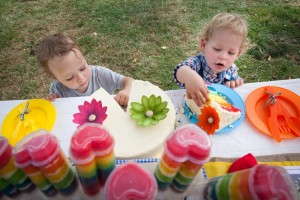 7.Icing on the cake
7.Icing on the cake
So what’s really important to you? What are the things you won’t compromise on – those things that your wedding venue must have to make your wedding perfect?
- Do you require parking? How much parking is required?
- What facilities are important to you?
- Do you need disabled access?
- How many rooms will you need?
- What size of rooms are available?
- Are there separate rooms for getting ready beforehand?
- Is there a space for children or for elderly to escape the main area?
- Will yours be the only wedding at that venue on the day?
- Is there accommodation at the venue?
What facilities or factors are on your non-negotiable list?
8.The fine detail
They’re probably not deal breakers, but there may be a few minor points that could sway your decision or would give a different day depending on the decisions by individual venues about their policies on:
- Confetti
- Candles
- Marquees
- Fireworks
- Helicopters
- Music switch off time
- Enough power
- Use of your own suppliers
- License for alcohol
 Picking your venue may be time consuming but the effort will be worth it as the venue is probably the most expensive element of the day, so you want it to be right. Once you’ve sorted the venue (and set the date) then you can start planning all the other finer details. With the who, where and how much at the fore front of your mind, everything else can fall in to place.
Picking your venue may be time consuming but the effort will be worth it as the venue is probably the most expensive element of the day, so you want it to be right. Once you’ve sorted the venue (and set the date) then you can start planning all the other finer details. With the who, where and how much at the fore front of your mind, everything else can fall in to place.
More about the money side of things soon in the last element of the holy trinity of wedding planning: how much.
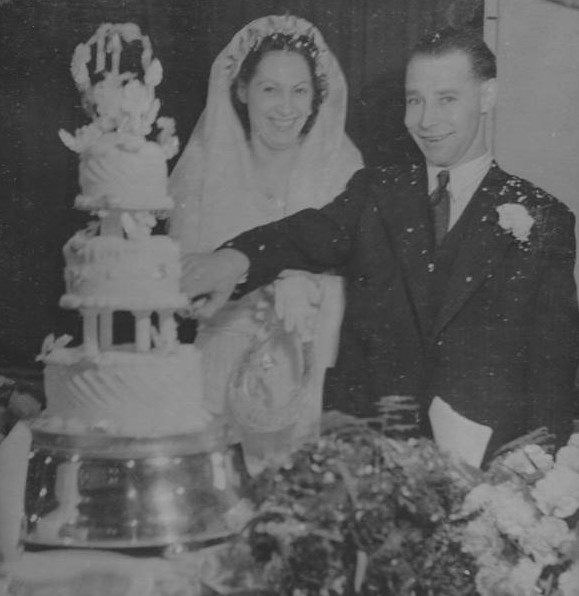
by Hanami Dream | 8, March, 2016 | blog, holy trinity of wedding planning, tips
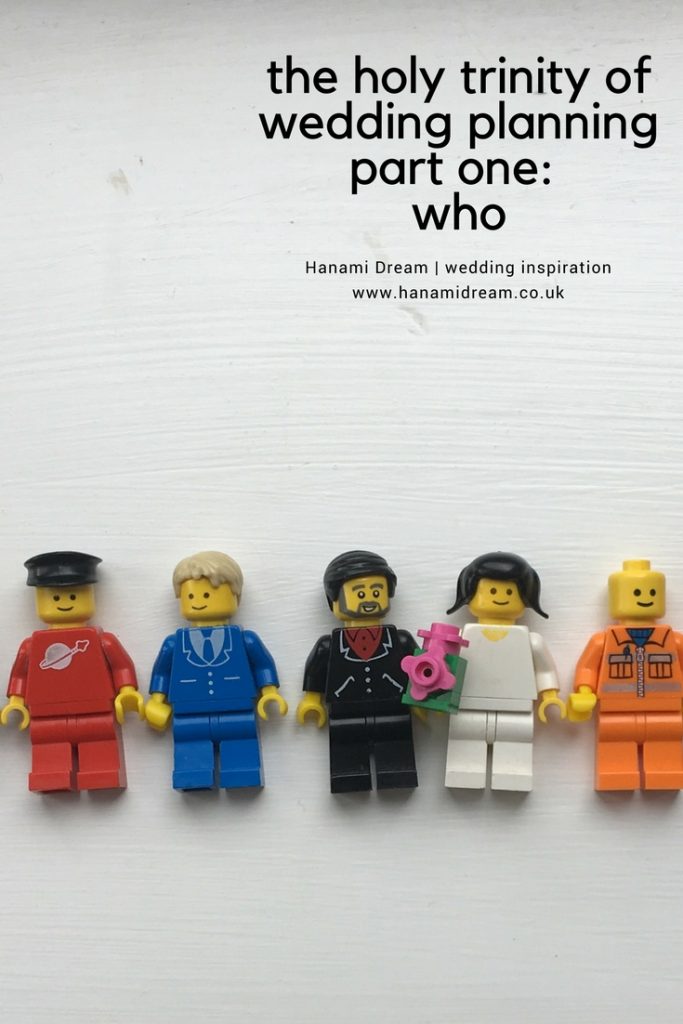 Last month I started to talk about the three key aspects of planning a wedding that pretty much affect every other thing that is connected with your big day. These are where, who and how much (otherwise known as your venue, guests and budget). These are a group of three things that are united. As I mentioned in the post that looked at when to get married, nearly all the decisions you have to make about your wedding will come back to one, two or all of the elements in what I class as the holy trinity of wedding planning.
Last month I started to talk about the three key aspects of planning a wedding that pretty much affect every other thing that is connected with your big day. These are where, who and how much (otherwise known as your venue, guests and budget). These are a group of three things that are united. As I mentioned in the post that looked at when to get married, nearly all the decisions you have to make about your wedding will come back to one, two or all of the elements in what I class as the holy trinity of wedding planning.
This month I’m going to tackle the who element and your all-important guest list (and will look at the where and how much aspects another time).
There will probably be some tough decisions to make with your guest list. Perhaps the reality of your budget means you have to rein in a few of your plans, or other people’s involvement means compromising on some thoughts, or maybe who you want to invite and have on your guest list causes headaches.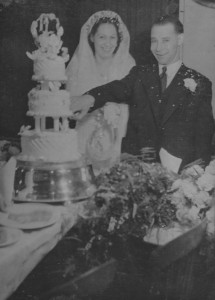
Here are 10 things that can dictate and influence who gets to come to the big day:
1. Venue
Firstly the other two elements of the holy trinity of wedding planning (the where and how much) will have a massive say on how many guests you can invite. For example, you can’t decide on a venue without knowing how many people you want to invite. Or maybe you want to pick your dream venue and have the size of the place dictate the number of guests you can invite. The venue could also influence the style of wedding you have based on how many guests you’re allowed in the room for a ceremony, a sit down meal or a standing buffet (this number will vary depending on the number of chairs and tables required for different room set ups).
Where you hold your wedding may affect whether people are able to travel to it. For instance, if you have a destination wedding abroad or hold it in a different part of the country to where your family live. These decisions could mean that elderly relatives can’t make it or people can’t take extra time off work to travel or stay over at the venue. Although, maybe you want to limit the numbers and so eloping or flying off to Vegas may be the best option for you so that you have just a few select guests there. (Bear in mind that infamous episode of Don’t Tell the Bride though and don’t eliminate important guests ie pick one sibling over the other to go to a destination wedding!)
2. Budget
The other part of the holy trinity of wedding planning is the money side of things. How much you have to spend will definitely factor in to how many people you can invite. It might not just be about how many people you can fit in the room, but how many you can afford to be there too. There are some costs that won’t change no matter how many people are there but there a number of variable costs that will alter depending on how many people are enjoying them. These costs include the food, favours, cake, drinks, stationery (such as invites, menus, orders of services etc) and the size of the bridal party. Plus if you are going abroad, consider whether you or your guests pay for their transport, travel and hotel costs.
[Look out for more on budgeting advice for weddings and venue choices in future blog posts about the holy trinity of wedding planning coming soon.]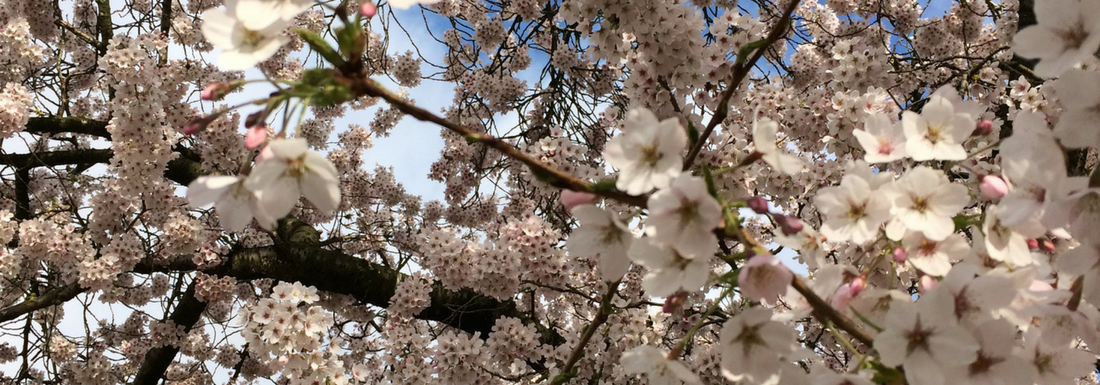
3. Timing
I covered quite a bit about this aspect in the So, when’s the big day? post last month. Suffice to say that the day of the week could have a big impact on whether people would be able to attend and also if it’s during a holiday time. If you really want to ensure people can make it then the best advice is to give them as much notice as possible. Send out save the date cards or discuss with key people to find out whether they could make it.
4. Law
Let’s bring this back down to the basics. The most important people to be at your wedding are you and your partner. As well as you two, you only really need 3 (or 4) other people to be there if you want an intimate affair. So as long as you’ve got someone to carry out the ceremony (plus a registrar if the person who conducts the ceremony is not authorised to register marriages) and two witnesses then you’re sorted. Anyone else is a bonus.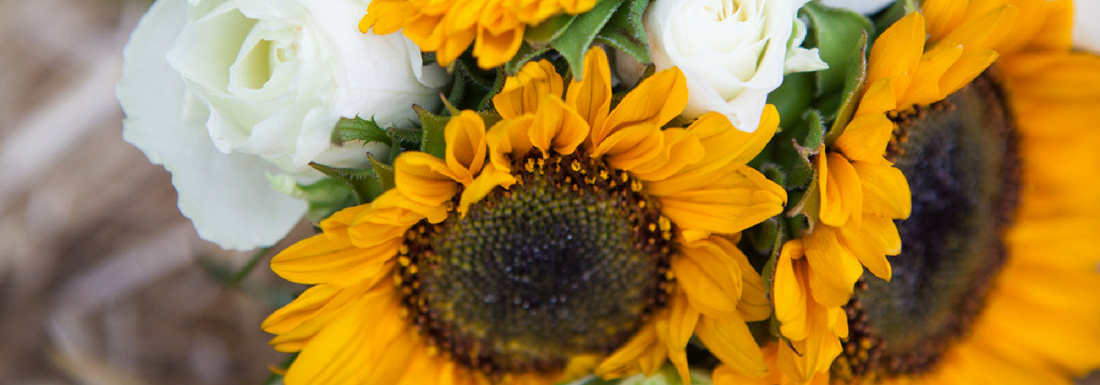
5. Family
It’s probably best to start with your nearest and dearest. Who could you not do without in order to enjoy the day? These are probably your parents, siblings, family and close friends. If you have a very large family, it could mean that you don’t have many spaces left for lots of other guests!
6. Wedding party
Then there’s the crew that stand alongside you on the big day. These reliable, supportive and trusted friends are who you are putting all your faith in to ensure your day goes smoothly. So pick your team wisely (this was a top tip from one bride in the Wedding day advice from real brides and grooms blog). It is entirely up to you how big to make your wedding party. But consider that how many people are in the bridal party will affect the number of bridesmaids dresses, bouquets, gifts, suits etc that you have to include in the budget (yes, everything comes back to the holy trinity of wedding planning again!) Decide and discuss what you are going to pay for and what elements you require to be paid for by the wedding party as soon as you can.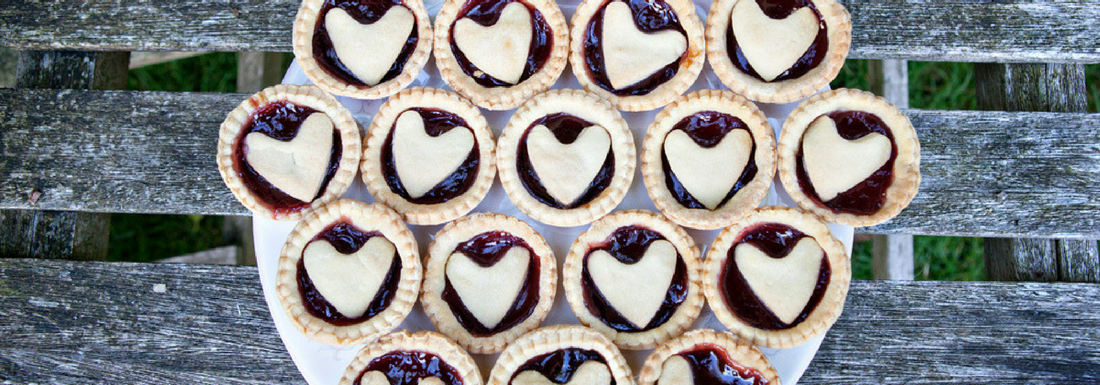
7. Wallet
Now this is the biggy and probably the most political and controversial aspect. Who is paying for the wedding? If you are paying for your own wedding, you pretty much can decide all elements yourself. Or at least have the final say. However, if the money is coming from someone else you may feel indebted to honour their wishes or requests. For example, if your parents are paying then they may want to invite many of their own guests to the day. Traditionally it is etiquette for the bride’s and groom’s parents to have a proportion of the guest list to allocate themselves. Often it comes down to a bit of compromise. For me, I didn’t want to look around the room and not know the people that were sharing our day. With an intimate occasion, I didn’t want to invite a long-list relative at the sacrifice of inviting a dear friend.
8. Day vs evening
If you have the option to be able to split the day to different elements then you could include additional people as evening guests to join you after the main meal. But try to make sure it’s not just a tagged on event and still includes elements of a wedding day to make them feel like valued additions to the day.
9. Plus ones
You’ll also need to decide whether you are going to include children to your wedding. Are you inviting work colleagues? If you’re not limited to numbers will you allow single guests to bring plus ones that you potentially might not even know?
10. Who?
Ultimately, it all boils down to who you want in the room with you and how well do you want to know the people that are there. Honestly, you’ll start to see pound signs appearing above your friends and family’s heads! I guess, it’s a crude way to think of it but in reality you’ve got to think ‘Would I take this person out to dinner and pay for their meal?’ (or pay for them to have a drink, if you are having a separate evening guest list). Do you know them? Do you like them? Have you seen them recently? Do you want them to share your day with you?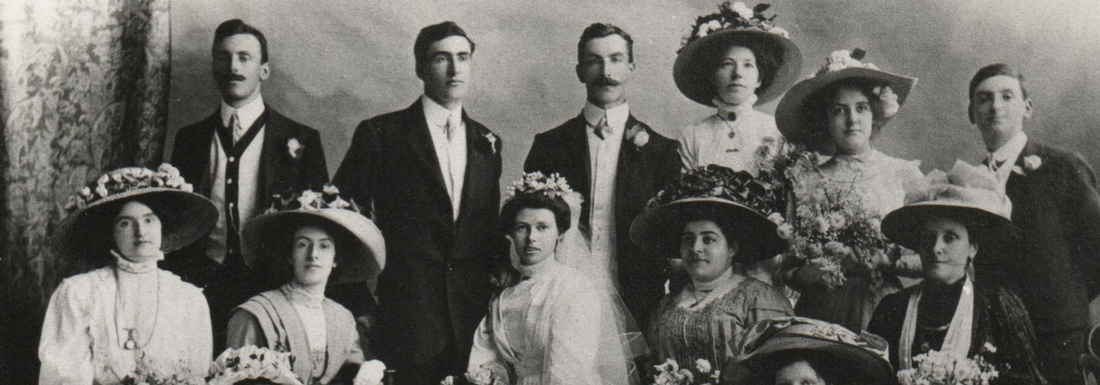
When you look back on your big day your wedding photographs will be a snap shot of your family and circle of friends at that moment in time.
There’s no right or wrong answer on who to invite to your wedding. Nor is there a magical formula that will work it out for you. Ultimately, you should invite guests that you want to share your special day with. When you look around the room you want to know that everyone in the room is an important part of your life and it is precious to have all the people you care about in one place at the same time.
So, you’ve got all your guests to the venue, now where do you seat them? Look out for a guide to organising your seating plan in another blog post soon.
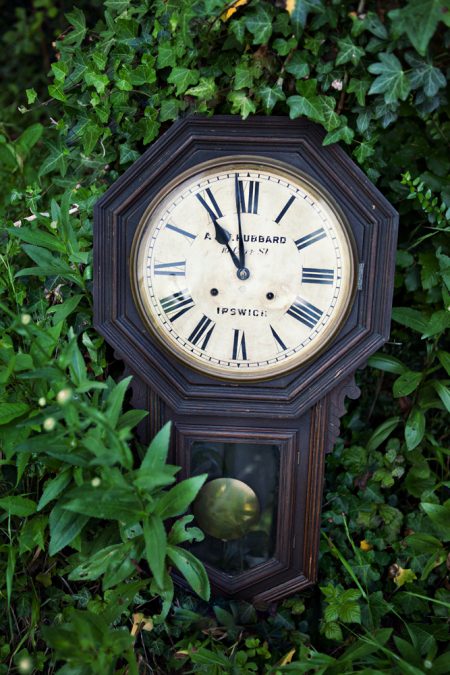
by Hanami Dream | 31, January, 2016 | blog, holy trinity of wedding planning, tips
-

-
Photography by Farrow Photography
-

-

-

-

It’s February and it might be the shortest month but it is often referred to as one of the most romantic months of the year (especially if Hallmark have done their job properly in convincing you, if you didn’t already agree). Plus this year there is double the chance of a proposal this month (if you are waiting for one patiently) with not only Valentine’s Day on the 14th, but as it is a leap year you can take matters in to your own hands and pop the question yourself on the 29th. We look forward to hearing all the forthcoming engagement stories and wedding plans. (Meanwhile if you are looking for inspiration on ways to propose (or if you just love hearing how people get betrothed) then take a look at some proposal stories from real brides that we’ve curated.)
Congratulations if you are recently engaged. Telling people your big news and flashing your new piece of jewellery is such an exciting time and how wonderful to be spreading good news amongst your nearest and dearest. Unfortunately, just telling the romantic (or run of the mill) engagement story is often not enough information for some of our family and friends. And I imagine that almost in the same breath as wishing you their congratulations, one of the first questions that you’ll get asked (again and again) when you first announce your engagement is ‘So, when is the big day?’ (After you’re married the question then becomes ‘So, when are you having a baby?’ But that’s a different story!)
If you’ve not set the date yet, this can be quite a daunting question and certainly one that requires quite a bit of thought. So before you rush to send out your save the date cards, please let us offer our guidance on how (and when) to set your wedding date.
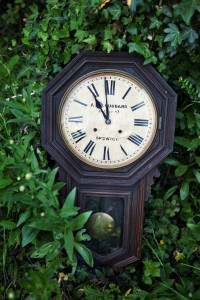
- Consider the holy trinity of wedding planning
For me, there are three key aspects of wedding planning that go hand in hand and pretty much affect every other thing that is connected with your big day. These are Venue, Guests and Budget (otherwise known as where, who and how much). They co-exist as you can’t really pick your venue without knowing how much you have to spend and how many people you want to invite. Likewise, you might not be able to invite all your guests due to venue size and money constraints. And let’s face it, your budget may well dictate whether you can afford your dream venue or how many second cousins removed can be invited. So they’re a bit like the chicken and the egg (and the farmyard!) as you can’t decide one thing without the other. (Don’t worry we’ll be talking lots about these three elements in future blog posts coming very soon!)
Anyway, I digress as we are actually talking about the when aspect of wedding planning at the moment. However, the where, who and how much elements very much affect when your big day will be too. For example, venues may have different prices depending on the time of the year and do you when your key guests or wedding party be available. Trust me, nearly all the decisions you have to make about your wedding will come back to one, two or all of the elements in what I class as the holy trinity of wedding planning.
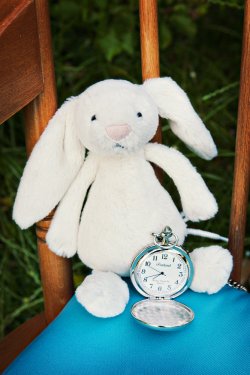
- Timing is everything
I married a school teacher so instantly my choices were limited for wedding dates if I wanted to have a honeymoon after the ceremony. (Honestly, I used to take a holiday in November time to enjoy some winter sunshine before I met my husband. But even before kids, I had to resign myself to more expensive non term time holidays! Heavy sign!) So, we chose the summer holidays which then meant we had to consider other people’s travel commitments and it impactedon our budget as it was in the height of wedding season. We also had to consider availability of certain suppliers at a busy time. One benefit of marrying a teacher though is that we weren’t restricted to a weekend date which made it cheaper on the venue costs (although would mean that some of our guests had to take a day off work). See what I mean about it always coming back to decisions or compromises based on cost, guests or venue!
So you have to decide what are your must haves (ie what you’re not willing to compromise on) and what you can be flexible with. For example, in order to get your dream venue are you willing to wait a couple of years to get the right date. Here are some things to bear in mind when picking your date:
- Year – which year are you thinking? This year? Next year? Or several years down the line? This may seem like a basic question but if you want to do something this year then suppliers and venues may already be booked up. So think about how long you have /want to plan the wedding. The more notice you give then the more likely you are able to have your first choice. Only last week I heard a supplier say that they have been booked for a 2020 wedding – now that is forward planning!
- Time of year / season – this could affect what the weather is likely to be like (although who knows what the British weather is up to at the moment!) which could influence your themes, colours, venue, attire, transportation, food choice etc etc. Also different seasons can have an impact on the price and availability of food and flowers. I really wanted the church to be crammed full of cowslip when I got married but this is just nowhere to be seen in August!
- Month – the old Catholic marriage song below states your fate as a couple depending on the month you choose to wed. At the time, it was unusual and unlucky for a couple to get married in May as this was the start of Summer and was marked by a pagan feast. Although this superstition may date further back to Roman times. On the contrary, June and other summer months are very popular and even December is gaining in popularity, presumably so that people can use holiday time around the big day. It is worth considering different months as popular ones are in demand so prices may increase and availability will decrease.
Marry when the year is new, always loving, always true,
When February birds do mate, you may wed or dread your fate
If you wed when March winds blow, joy and sorrow both you’ll know
Marry in April when you can, joy for maiden and for man,
Marry in the month of May, you will surely rue the day,
Marry when June roses blow, over land and sea you’ll go,
They who in July do wed, must labour always for their bread,
Whoever wed in August be, many a change are sure to see,
Marry in September’s shine, your living will be rich and fine,
If in October you do marry, love will come but riches tarry,
If you wed in bleak November, only Joy will remember,
When December snows fall fast, marry and true love will last.
- Day of the week – ironically in another old poem, it states that getting married on a Saturday is unlucky which nowadays is the most common day for people to tie the knot. However it is also one of the most expensive days too. We chose a Friday which still had the benefit of being near a weekend for people to tag on holiday and was slightly cheaper. More people are now considering other weekdays as options and Sundays too (although this used to be deemed as a mark of disrespect which is probably why it is not mentioned in the version of the poem I sourced).
Monday: Brides will be healthy
Tuesday: Brides will be wealthy
Wednesday: Brides do best of all
Thursday: Brides will suffer losses
Friday: Brides will suffer crosses
Saturday: Brides will have no luck at all
- Date – superstition often forces couples to avoid the 13th of the month (especially if it falls on a Friday), your birthday, the day of a full moon, April Fool’s Day and it used to be forbidden to get married in Lent and Advent by the church. Some people think that 7 is supposed to be a lucky number whilst 4 is deemed unlucky in Japanese and Chinese traditions so dates with these numbers may be sought after or avoided by couples. Instead perhaps you want to pick a meaningful date to you such as the anniversary of the date you first met, a memorable date that you’ll remember like 12/12/12 or a nod to your heritage such as your grandparents’ wedding anniversary date.
- Time of day – as someone who is very much driven by their stomach, I would always advise to think about how meal times fit around the formal parts of the day. You don’t want to be having a ceremony when everyone’s tummies are rumbling and there’s no sign of a meal for hours. (As an aside, always keep your guests fed, watered and entertained.) Wedding ceremonies that took place before noon were said to be lucky versus the inverse in the afternoon. However, if you hold a later ceremony you could save money if you only have to feed your guests once in the day.
- Day or night – a wedding after dark used to be considered unlucky but you could split your guests up to have some come for the whole day and others just join you for the evening part of the day so you don’t have to pay for all of them to have a sit down meal.
- Duration – nowadays more and more couples are choosing to have a weekend long wedding over 2-3 days to enjoy the company of their friends and family for longer. This would obviously add cost and commitment from all parties if you were going for his option.
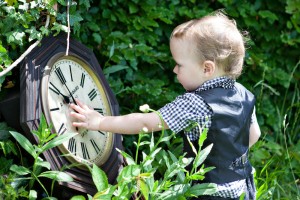
- What else is going on in the world
You may be living and breathing your wedding and everything else in the world is taking a back seat. However, things are still going on around you and some national, local and annual events may have an impact on your guests involvement, availability and enjoyment. For example:
- Public holidays – you may want to avoid them as they might increase traffic on the roads near holiday spots or because guests will have family commitments. Or embrace them as people will instantly have a day off.
- Sporting events – things like the Olympics this year, the FA Cup final and the Euros may be distracting if you’ve got any keen sporting fans attending your wedding.
- Royal occasions – it doesn’t look likely there’s a royal wedding this year (we were certainly worried Will and Kate were going to pick the same date as us in 2011!) but the Queen is celebrating her 90th birthday in June so people may have plans to mark that occasion.
- Other people’s occasions – no one really wants to share their big day with someone else’s thunder. So you may want to avoid other people’s birthdays, wedding anniversaries, and religious festivals. Unbeknown to us, there were two other couples that were guests at our wedding who got married on the same date as us (they are teachers too!). They actually liked it as it was a great way to celebrate their own anniversary. However, if it had been a milestone anniversary they might have thought differently. Likewise picking a date near a close friend or family member’s own wedding day might not go down too well either.
Take a look at a list of some events (in England) in 2016 that could influence your choice of dates.
And here are the 2017 dates for your diary to consider.
Plus the 2018 dates for your diary.
Here are the 2019 dates for your diary – https://www.hanamidream.co.uk/dates-for-your-2019-diary/
And here are the 2020 ones too.
Good luck on your quest to pick a date for your wedding day and therefore your wedding anniversary date for years to come. I know a lot of thought will go in to answering the question of ‘So, when is the big day?’ Remember to pick a date that works for you (and the holy trinity of wedding planning obviously!)
We’d love to hear your engagement stories please contact me with how you proposed or were proposed to.
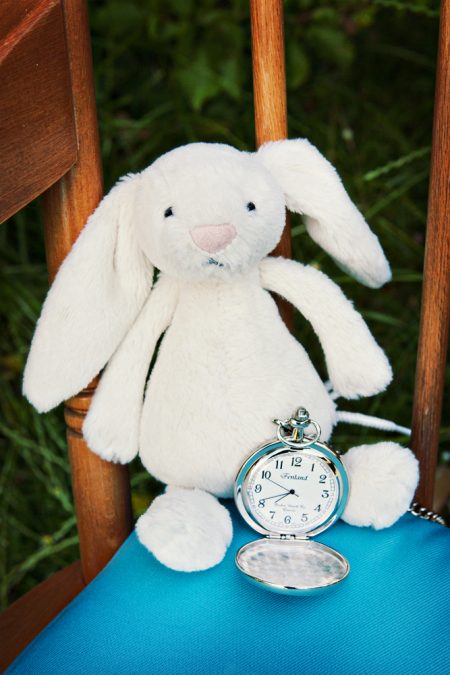
by Hanami Dream | 31, January, 2016 | blog, holy trinity of wedding planning, tips
Here’s a list of some events (in England) still to come in 2016 that could influence your choice of dates:
- Chinese New Year 8 February
- Shrove Tuesday 9 February
- Valentine’s Day 14 February
- Mother’s Day 6 March
- St Patrick’s Day 17 March
- Good Friday 25 March
- Easter Day 27 March
- Easter Monday 28 March
- Boat Race 27 March
- April Fool’s Day 1 April
- Passover 22-30 April
- May Day Bank Holiday 2 May
- FA Cup Final 21 May
- Spring Bank Holiday 30 May
- Queen’s 90th celebrations 12 June
- Ramadan 6 June – 5 July
- Father’s Day 19 June
- Wimbledon 27 June – 10 July
- Independence Day 4 July
- Eid 7 July
- Euros 2016 final 10 July
- Rio Olympics 5 – 21 August
- Summer Bank Holiday 29 August
- Guy Fawkes 5 November
- Remembrance Day 11 November
- Diwali 30 November
- Thanksgiving 24 November
- Hanukkah 24 December – 1 January
- Christmas Day 25 December
- Boxing Day 26 December
- Christmas Bank Holiday 27 December
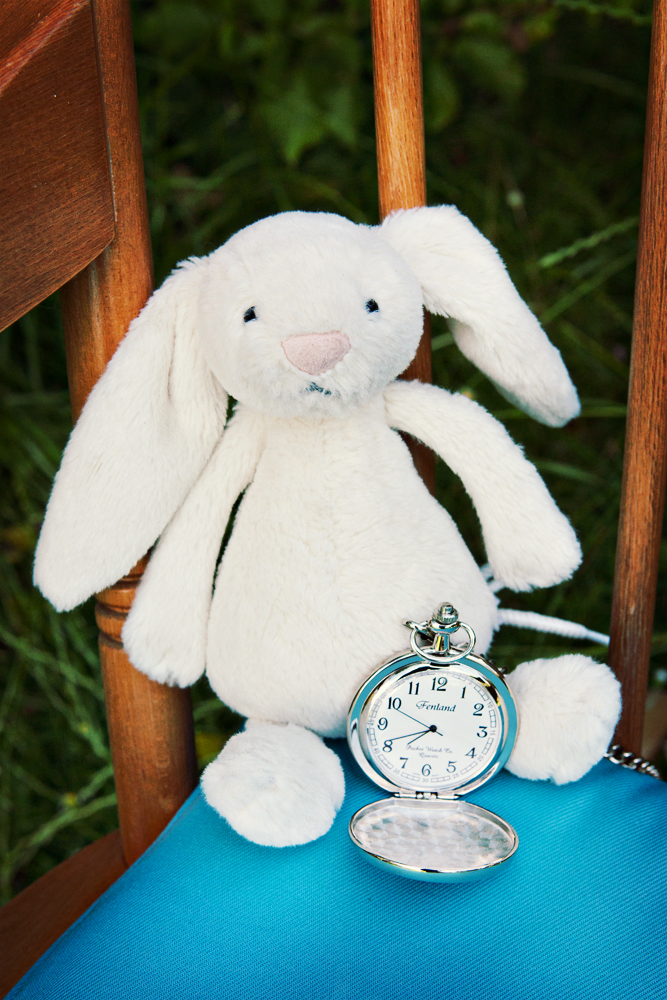













 So far in the series, I’ve introduced the three key aspects of planning a wedding that pretty much affect every other thing that is connected with your big day. These are who, where and how much (otherwise known as your guests, venue and budget). This group of three things are very much intertwined. Plus
So far in the series, I’ve introduced the three key aspects of planning a wedding that pretty much affect every other thing that is connected with your big day. These are who, where and how much (otherwise known as your guests, venue and budget). This group of three things are very much intertwined. Plus 









 So far in the series, I’ve introduced the three key aspects of planning a wedding that pretty much affect every other thing that is connected with your big day. These are who, where and how much (otherwise known as your guests, venue and budget). This group of three things are very much intertwined. Plus
So far in the series, I’ve introduced the three key aspects of planning a wedding that pretty much affect every other thing that is connected with your big day. These are who, where and how much (otherwise known as your guests, venue and budget). This group of three things are very much intertwined. Plus 
 3.Formalities
3.Formalities 5.Location, location, location
5.Location, location, location  7.Icing on the cake
7.Icing on the cake Picking your venue may be time consuming but the effort will be worth it as the venue is probably the most expensive element of the day, so you want it to be right. Once you’ve sorted the venue (and
Picking your venue may be time consuming but the effort will be worth it as the venue is probably the most expensive element of the day, so you want it to be right. Once you’ve sorted the venue (and 
 Last month I started to talk about the three key aspects of planning a wedding that pretty much affect every other thing that is connected with your big day. These are
Last month I started to talk about the three key aspects of planning a wedding that pretty much affect every other thing that is connected with your big day. These are 


















